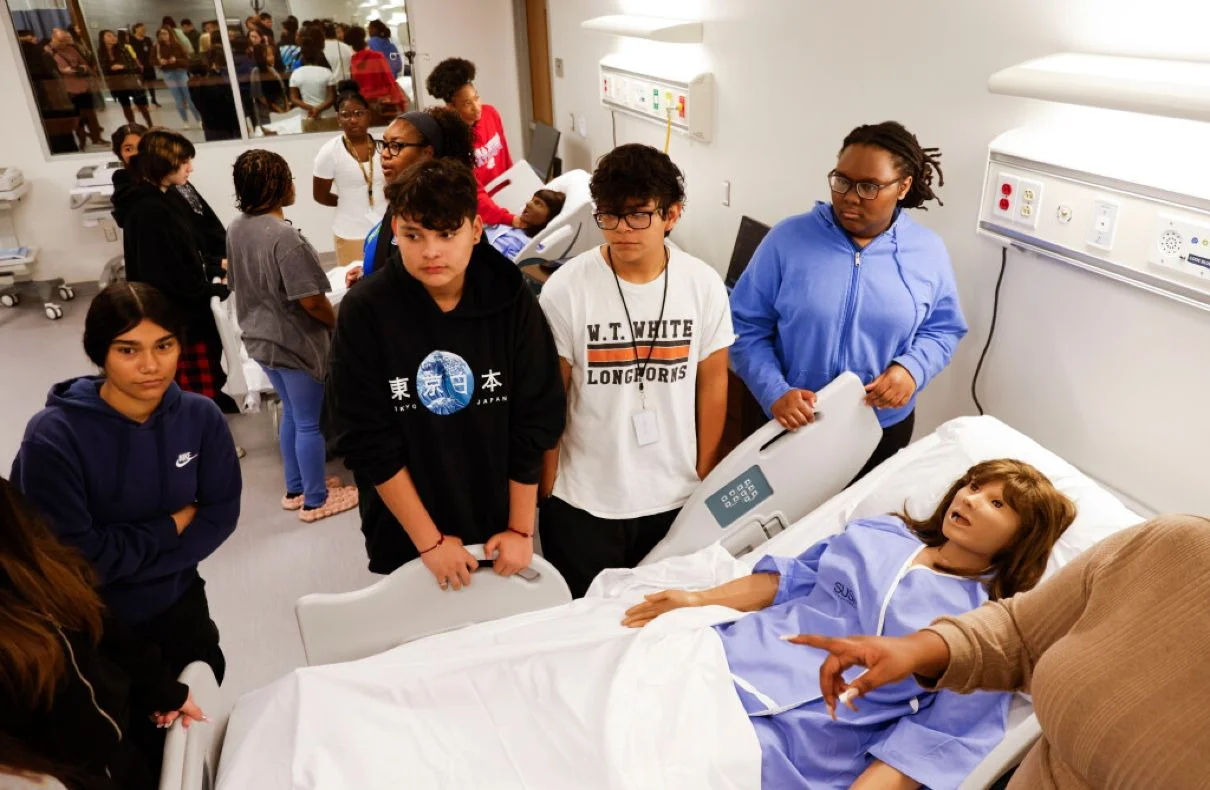
The U.S. healthcare system is facing a looming labor shortage, and visionary philanthropist Mike Bloomberg is stepping up to address this critical issue. With an investment of $250 million, Bloomberg Philanthropies is partnering with major health systems across the country to launch a groundbreaking initiative that will revolutionize healthcare education.
The collaboration between Bloomberg Philanthropies and prominent health systems is a game-changer in addressing the long-term workforce challenges faced by the healthcare industry. This initiative will work with public school systems in both urban and rural communities, opening new or refurbished high schools that combine traditional academic programming with specialized healthcare classes. By co-developing the curriculum and providing work-based learning opportunities, the partner health systems will play a pivotal role in bridging the gap between education and employment.
The initiative boasts an impressive lineup of partner health systems committed to shaping the future of healthcare education. These include:
-
Mass General Brigham
-
HCA Healthcare
-
Northwell Health
-
Ballad Health
-
Baylor Scott & White Health
-
Duke Health
-
Memorial Hermann Health System
-
Vanderbilt Health
-
Ascension
-
University of Alabama at Birmingham Health System
3 University of Wyoming Swimmers Killed in Tragic Car Crash in Colorado
The centerpiece of this initiative is the establishment of specialized healthcare high schools that will prepare students for careers in the healthcare industry. These schools will provide students with a comprehensive education that combines rigorous academic coursework with hands-on experience in healthcare settings. By integrating classroom learning with practical training, students will gain the skills and knowledge necessary to thrive in healthcare careers.
The healthcare high schools will offer a unique blend of traditional academic subjects and specialized healthcare classes. Students will have the opportunity to earn industry-relevant credentials, certifications, and college credits, allowing them to enter the workforce or pursue further education after graduation. The curriculum will be co-developed by the partner health systems, ensuring that it aligns with the evolving needs of the healthcare industry.
To provide students with real-world experience, the partner health systems will offer a range of work-based learning opportunities. Ninth and tenth graders will have the chance to job-shadow healthcare professionals and practice skills in simulation labs. In eleventh grade, students will have access to paid internships and professional mentoring. These experiences will not only enhance their practical skills but also expose them to the diverse career paths available within the healthcare industry.
Upon graduation, students who meet the program’s graduation requirements will have the opportunity to be recruited by the partner health systems. These health systems have committed to hiring students directly into healthcare roles, ensuring a seamless transition from education to employment. For those who choose to start working after high school, ongoing part-time or full-time education will be subsidized to support their career advancement within the partner health systems.
This initiative recognizes the unique challenges faced by both urban and rural communities in healthcare education and workforce development. It aims to make a lasting impact on the future of healthcare by addressing the specific needs of each community.
The initiative will focus on urban areas such as Boston, Charlotte, Dallas, Durham, Houston, Nashville, New York, and Philadelphia. In these cities, high schools will be transformed or newly established to create healthcare-focused campuses. By targeting urban areas, the initiative aims to address the shortage of healthcare workers in densely populated regions and provide opportunities for students to thrive in their local communities.
A Deep Dive into the Tragic Death of Laken Riley at the University of Georgia
Rural communities often face significant barriers to accessing quality healthcare and educational opportunities. To bridge this gap, the initiative will also serve rural geographies, including Demopolis, Alabama, and six locations in northeast Tennessee. These communities will benefit from a hybrid virtual and in-person program that leverages technology to deliver high-quality healthcare education to students in remote areas.
The success of this initiative has the potential to transform healthcare education nationwide. By developing innovative partnerships and programs, Bloomberg Philanthropies aims to create a sustainable solution to the healthcare industry’s labor challenges. Successful models and best practices developed through this project can be scaled and replicated in other communities, ensuring a steady supply of skilled healthcare workers for years to come.
The need for healthcare workers has never been more critical. According to the U.S. Bureau of Labor Statistics, there are currently two million unfilled healthcare industry jobs, and this number is expected to double by 3031. The collaboration between Bloomberg Philanthropies and partner health systems is a proactive response to these challenges, ensuring that the healthcare workforce is equipped to meet the growing demands of the industry.
